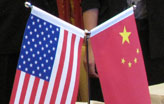Op-Ed Contributors
US' South Asia policy faulty
Updated: 2011-07-21 07:54
By Fu Xiaoqiang (China Daily)
The US and Pakistan have failed to fix the priorities in their cooperation. The US pays little or no attention to the complexity in Pakistan's domestic politics. It does not think much about Pakistan's national interests while handling the Afghan issue either. After Obama entered the White House, his administration expanded the "war on terror" in Afghanistan to tribal areas in Pakistan with serious consequences to Islamabad. In comparison, Pakistan's anti-terrorism strategy is based on its internal stability and aimed at resolving the Afghan issue in a way that would better serve its national interests.
The US may have its reasons for the overtly pro-India stance in its South Asia strategy. But that could harm Pakistan's national security and the sustainability of US-Pakistan relations.
Over the past 10 years, the US has treated India as Pakistan's arch rival, as a global strategic partner - providing it with civilian nuclear fuel and technology - and has let India spread its influence in Afghanistan. Clinton's visit to India will consolidate that cooperation. In contrast, the US has treated Pakistan only as a regional partner in its fight against terrorism and its aid to Islamabad have always come with a set of conditions, some of which have harmed Pakistan's sovereignty and security. Also, the US has thwarted Pakistan's efforts to develop nuclear energy for civilian use and build oil pipelines.
Inequity and distrust are rooted deeply in US-Pakistan ties. The covert US raid on bin Laden's hideout enraged Pakistan because it was carried out on Pakistani territory without Islamabad's prior knowledge. The raid intensified anti-US sentiments in Pakistan, too. Besides, while lauding the US raid that killed bin Laden, the West has questioned Pakistan's trustworthiness as an anti-terrorism ally.
The killing of bin Laden has made Washington reduce its anti-terrorism front and prompted a change in US-Pakistan ties. Washington's new anti-terrorism strategy is explicitly aimed at ensuring security within the US and strengthening special operations, rather than traditional military means, against terrorists. This strategic change means Pakistan's role as an anti-terrorism ally is becoming less important to the US.
In more ways than one, bin Laden's killing has been a turning point in the US' anti-terrorism strategy and has created uncertainties for the US-Pakistan anti-terrorism alliance as well as bilateral ties.
But if the US is really serious about fighting terrorism in South Asia, it should treat India and Pakistan more equally, instead of standing closer to New Delhi and putting extra pressure on Islamabad. This will promote peace in the region and eventually help the US achieve its anti-terrorism goal. Or else, it could yield the opposite result.
The author is the director of the Center for Counterterrorism Studies, China Institutes of Contemporary International Relations.
(China Daily 07/21/2011 page9)

Specials

Yao Ming retires
At just one-year old, Yao Qinlei will never get to see her famous father Yao Ming play on court.

China-US Governors Forum
The first China-US Governors Forum is held July 15 in the Salt Lake City, the United States.

My China story
Foreign readers are invited to share your China stories.